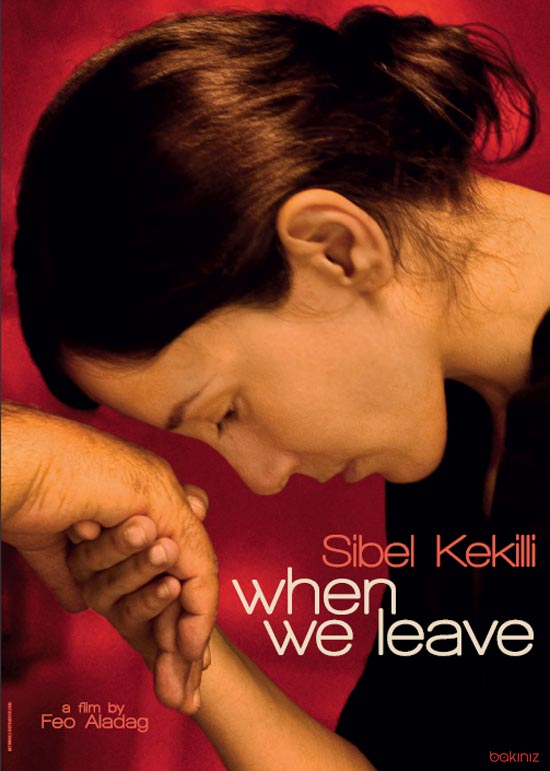
The path to free thought is a dire one in Feo Aladag’s debut feature When We Leave. Umay (Sibel Kekilli) is a 25-year old woman, married with child who lives with an abusive, ex-soldier husband within a tightly reigned Muslim community. After a particularly brutal meal (Aladag uses the dining table and the communal dinner as a dangerous weapon in When We Leave) Umay takes her young son Cem and flees to her parent’s home in Berlin. Yet, the home is not where the heart is, and the free-spirited young woman finds no solace in the arms of her parents, equally conservative Muslims who have no time or understanding for a woman living alone with child. Aladag drags her main character through the mud, addressing the the constricting familial ties that bond so many close-knit religious communities along way. Never once during film though does Aladag resort to portraying her characters as one-not villains, or untouchable Madonnas. The characters of When We Leave react as their world dictates, with sadness and yearning and the slow pull backwards of the unyielding brick of religious law.
When We
Leave is a fantastic portrayal of the conservative world
of Muslim relations, one that shines a bright light on the
archaic relations between man and woman without ever placing
a judgement on them. Umay leaves her family because she no
longer wants to be beaten, no longer wants to be held back
from walking the path she’s keen to walk. She’s 25, with a
child, and no longer wants to be beaten by her husband, her
brothers, at time her fathers. Her leaving though isn’t
without consequence, it destroys the family’s honor, and
quietly cripples their standing in the community. To Umay,
stepping away from her family is a tragedy as well, and in
scene after scene, with a nauseating knot of tension, she
returns to her family, never giving up hope that she, as she
wants to be, will be once again accepted in to the fold.
Though Umay is clearly the character we are meant to
emphasize with, Aladag never lets her off easy. She is
irresponsible and passionate to the point of losing site of
her son’s best interest, but she’s reacting the only way she
knows how. The way her family has taught her. The film,
stark and quiet, isn’t about how terrible the crushing
confines of conservative religion can be (though it
certainly addresses this) but the ties that bond us. The at
times unbreakable connections between our blood-relatives
that pull us back over and over again, regardless of what
they put us through.
|
